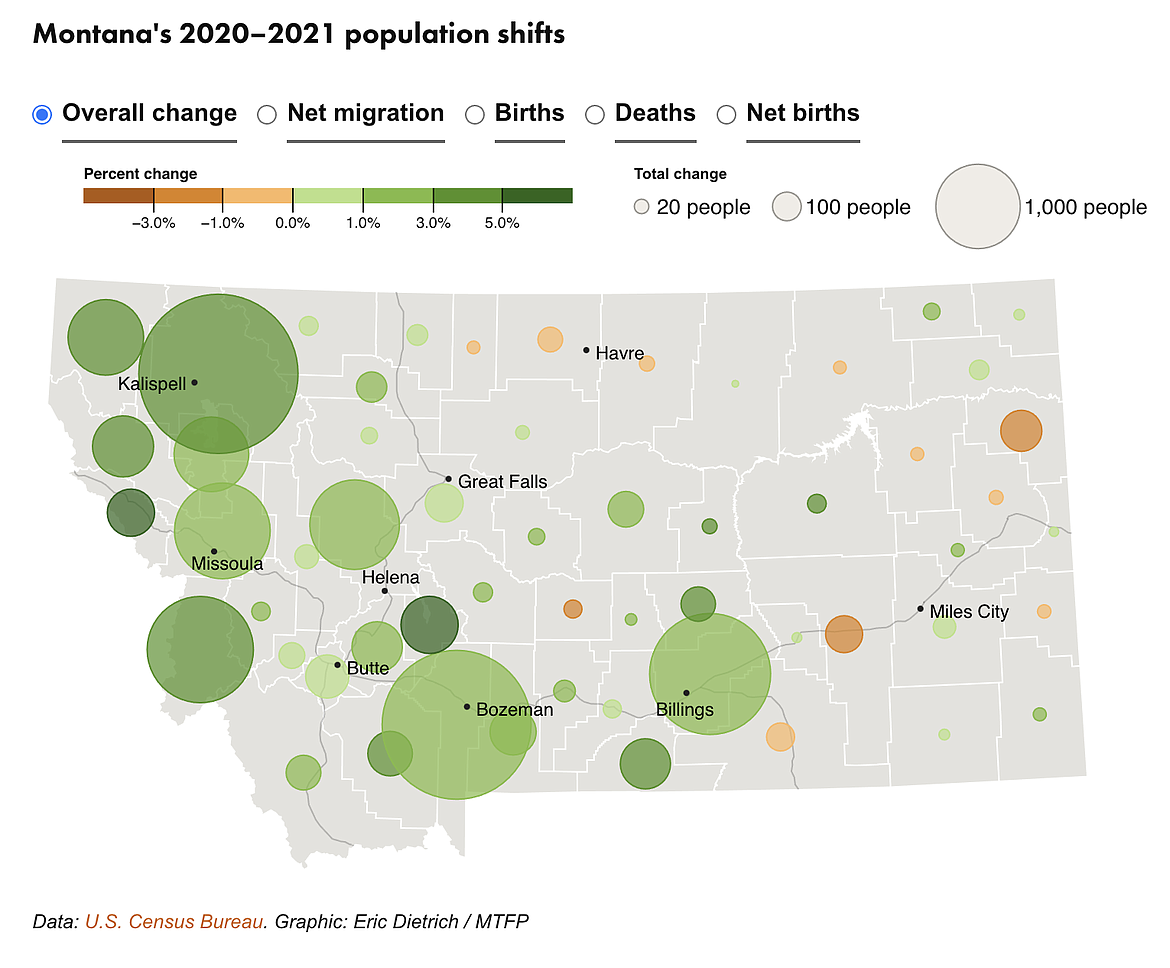Census: Flathead fastest-growing county in state
Bozeman may be Montana’s most expensive major city, with the median single-family home price in Gallatin County approaching $900,000 as of February, but population data released March 24 by the U.S. Census Bureau indicates it has forfeited another title: fastest-growing urban area.
Gallatin County, which spans Bozeman and many surrounding communities, has for years been Montana’s fastest-growing county, often adding enough people to rank the Bozeman micropolitan area (officially at “metropolitan” status as of 2020) one of the fastest-growing small cities in the nation.
Gallatin added 3,211 new residents over the July 1, 2020 to July 1, 2021 period covered by the new data,: for an annual increase of 2.7%. But, as the COVID-19 pandemic shifted migration patterns, the Kalispell region took Bozeman’s crown. As is the case across the state, new arrivals were the driving demographic force.
Flathead County, which also includes Whitefish and Columbia Falls, added 3,681 people between July 1, 2020 and July 1, 2021, according to the Census Bureau. That’s a 3.5% growth rate.
South of Missoula, Ravalli County grew even faster on a percentage basis, at 3.6% year over year. With Ravalli’s population roughly half of Flathead’s, though, that meant fewer new people — about 1,600.
Montana as a whole, in comparison, posted 1.7% population growth overall, adding just more than 18,000 people between 2020 and 2021.
Several rural counties in western Montana also posted eye-catching growth figures, adding hundreds of residents and growing even faster in percentage terms than Flathead and Ravalli counties: Mineral (Superior) and Broadwater (Townsend) at 6.5% each, and Sanders (Thompson Falls) and Lincoln (Libby) at 4.1% and 4.0%, respectively.
Those growth trends generally align with state tax filing data presented by legislative fiscal analysts in March, which described high growth rates in the state’s urban areas and rural northwest counties. The tax data, which estimated migration based on the number of tax filers in each county, indicated faster growth for Gallatin County (5.2%) than Flathead County (4.5%).
The new county-level figures published by the Census Bureau’s Population and Housing Unit Estimates program, represent interim figures intended to tide over the nation’s data-hungry demographers, public officials and citizens between the bureau’s once-a-decade counts, conducted most recently in 2020.
In contrast to the decennial census effort, which tries to count every American resident directly, the annual population estimates are produced by taking the most recent census count and adjusting it to account for births, deaths and migration. The birth and death counts used for those adjustments are tallied from birth and death certificates. Migration is estimated based on government records including federal tax returns and Medicare enrollment data.
The 2021 population estimates indicate that migration was by far the most significant population driver for Montana in the year following the 2020 census. Without it, Montana’s population would have shrunk, since the state saw just over 12,000 deaths and about 10,500 births, a net loss of about 1,500 residents. Accounting for people who moved in and people who left for other places, the state added nearly 20,000 new residents.
This story is published by Montana Free Press as part of the Long Streets Project, which explores Montana’s economy with in-depth reporting.

